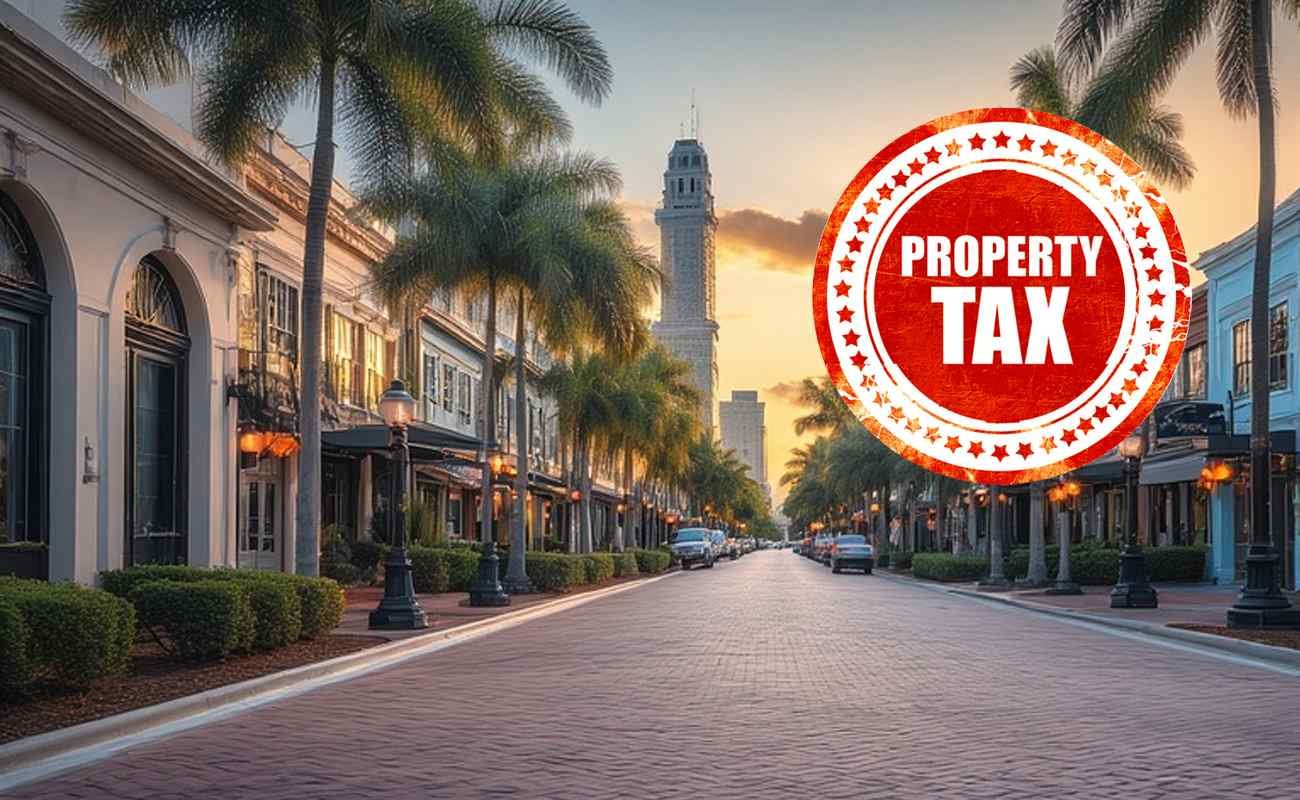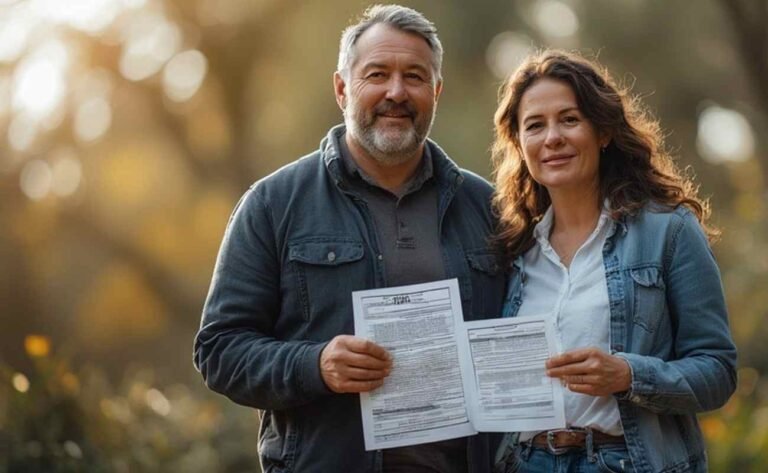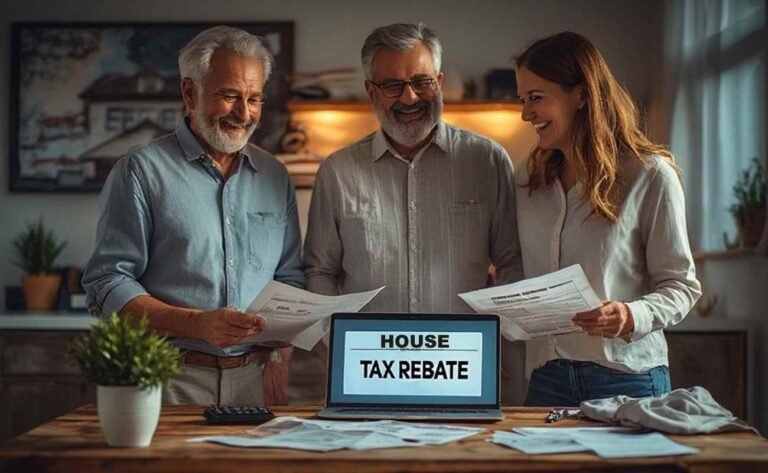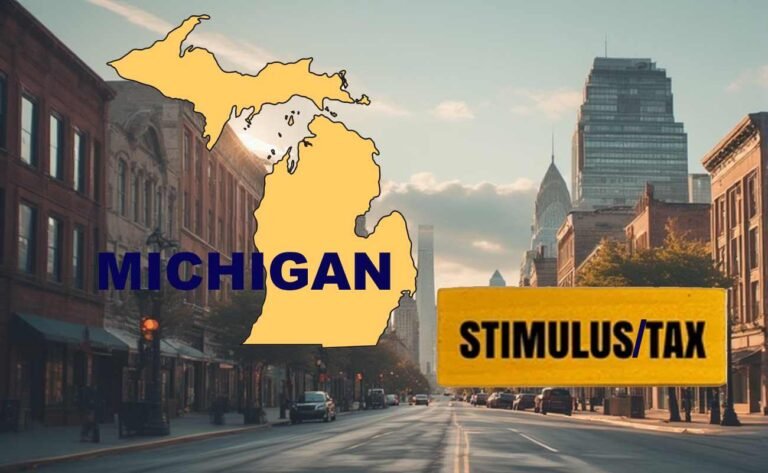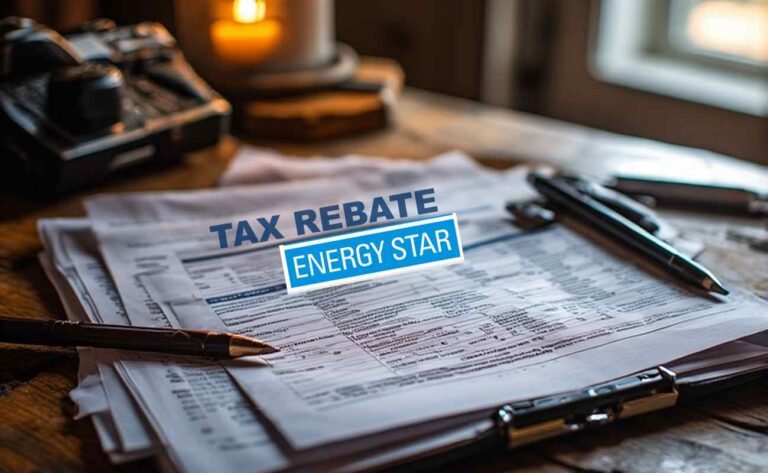Florida’s $1,000 Property Tax Rebate: Will It Pass? Latest Updates
Florida homeowners have been buzzing about Governor Ron DeSantis’s proposed $1,000 property tax rebate for 2025. This initiative aims to provide direct relief from rising property taxes by issuing rebate checks to eligible residents, covering part of state-mandated school levies. As of August 22, 2025, the proposal hasn’t passed the legislature yet, despite strong pushes from the governor. It was introduced in March 2025 as a step toward broader property tax reforms, but faced pushback during the legislative session, ending without approval. Homeowners could still see action if it’s revisited in future sessions or through a ballot measure, potentially impacting millions with average savings of $1,000 per homestead. Keep reading for the full breakdown, including eligibility, timelines, and what might happen next.
The rebate ties into Florida’s ongoing efforts to ease homeowner burdens amid increasing assessments. DeSantis framed it as a way to make the state more affordable, especially for families and seniors dealing with inflation. However, disagreements over funding and long-term reforms stalled progress. If it eventually passes, checks might arrive by late 2025 or early 2026. For now, it’s in limbo, but similar tax relief ideas are gaining traction elsewhere. This guide dives deep into the details, with lists and tables to help you navigate the topic easily.
Background on Florida’s Property Tax Relief Efforts
Property taxes in Florida fund essential services like schools and local governments, but they’ve climbed sharply in recent years due to booming real estate values. That’s why proposals like this rebate matter. Governor DeSantis first floated the idea in early 2025, positioning it as immediate help while planning bigger changes. Let’s break down the key milestones.
- Proposal Announcement (March 2025): DeSantis unveiled the plan, promising $1,000 rebates to offset school-related property taxes without cutting school funding.
- Legislative Push (April-May 2025): The House passed a broader $5 billion tax reduction package, but it clashed with DeSantis’s focus on property taxes.
- Session Challenges (June 2025): Debates heated up, with local governments worried about revenue losses. The session extended but ended without including the rebate in the final budget.
- Ongoing Advocacy (July-August 2025): DeSantis continues to criticize high property taxes, hinting at a 2026 ballot initiative for reforms.
- Public Reaction: Homeowners groups supported it, while critics argued it was a short-term fix ignoring deeper issues like assessment caps.
This timeline shows how the rebate started strong but hit roadblocks. Interestingly, as someone who’s chatted with neighbors about skyrocketing tax bills, I get why folks are frustrated—it’s not just numbers; it’s about affording to stay in your home.
Current Status of the $1,000 Homeowner Rebate in Florida
As we move into late 2025, the rebate remains unpassed. Recent reports indicate DeSantis is still advocating for property tax cuts, but no new legislation has materialized post-session. For the latest, experts suggest monitoring official channels. Here’s a quick status update in list form for clarity.
- Legislative Outcome: Failed to pass in the 2025 session due to budget disagreements and local opposition.
- Governor’s Stance: DeSantis threatens vetoes on other tax plans and pushes for rebates as a precursor to eliminating property taxes entirely.
- Potential Revival: Could reappear in a special session or as a 2026 constitutional amendment, affecting taxes starting in 2027.
- Recent Developments (August 2025): Property tax bills are rising in areas like Palm Beach, fueling calls for relief, but no rebate action yet.
- Expert Opinions: Analysts from groups like the Tax Foundation note that while the rebate is popular, sustainable reforms like assessment limits might be more effective long-term.
Transitioning from status to specifics, if it does pass, who qualifies? Let’s explore that next.
Eligibility Criteria for Florida’s Proposed Property Tax Rebate
Eligibility focuses on homestead owners, ensuring the relief targets primary residents. Florida already has homestead exemptions, and this rebate builds on that. Below is a detailed list of who might qualify, based on the original proposal.
- Homestead Exemption Holders: You must have an active homestead exemption on your primary residence, which reduces taxable value by up to $50,000.
- Florida Residents Only: Non-residents or vacation home owners don’t qualify; it’s for full-time Florida dwellers.
- Income Thresholds: No strict limits mentioned, but similar past rebates prioritized lower-income households—expect possible caps around $100,000 household income.
- Property Type: Single-family homes, condos, and mobile homes qualify if homesteaded; rentals and commercial properties do not.
- Application Requirements: Likely need to file through county tax collectors, providing proof of residency and tax payment.
- Exclusions: Properties with delinquent taxes or in foreclosure might be ineligible.
- Special Groups: Seniors over 65 or disabled veterans could get priority or enhanced amounts, aligning with existing exemptions.
Remember, these are based on the proposal—actual rules could change if it passes. For comparison, check out how Georgia’s 250-500 Tax Rebates work for similar state-level relief.
Step-by-Step Process: How the Rebate Would Be Distributed
If approved, the distribution process aims for simplicity. DeSantis emphasized quick delivery via checks or direct deposits. Here’s a step-by-step guide in a numbered list to make it straightforward.
- Legislative Approval: The Florida Legislature must pass a bill authorizing the rebates, possibly in a future session.
- Funding Allocation: State budget sets aside funds—estimated at $1 billion total for all eligible homeowners.
- Eligibility Verification: County tax offices cross-check homestead records; no new applications if you’re already exempted.
- Rebate Calculation: Average $1,000 per property, adjusted based on school levy amounts in your county.
- Issuance Method: Checks mailed or direct deposited by December 2025, similar to stimulus payments.
- Tax Implications: Rebates might count as non-taxable income, but confirm with IRS guidelines.
- Appeals Process: If denied, appeal through your local property appraiser within 30 days.
This process mirrors other relief programs, reducing hassle for recipients. Now, let’s look at potential impacts in a table format.
Potential Impacts of the $1,000 Property Tax Rebate
Understanding effects helps homeowners plan. The table below compares pros, cons, and economic ripples.
| Aspect | Positive Impacts | Negative Impacts | Broader Economic Effects |
|---|---|---|---|
| Homeowner Savings | Direct $1,000 relief per household, easing budgets. | Short-term only; doesn’t address rising assessments. | Boosts consumer spending by $1B statewide. |
| School Funding | State covers shortfalls, maintaining education quality. | Potential future cuts if reforms fail. | Stabilizes budgets without local tax hikes. |
| Real Estate Market | Makes Florida more attractive for buyers. | Could inflate property values further. | Encourages migration, straining infrastructure. |
| Low-Income Groups | Helps families and seniors stay housed. | Excludes renters, widening inequality. | Reduces poverty rates slightly in urban areas. |
| State Budget | Popular move, builds political support. | Adds to deficit if not funded properly. | Shifts revenue sources toward sales taxes. |
As you can see, the rebate offers quick wins but isn’t a cure-all. Shifting gears, what if it doesn’t pass? There are alternatives.
Alternative Property Tax Relief Options in Florida
Don’t count on the rebate alone—Florida offers other ways to lower your bill. Here’s a comprehensive list of current and proposed alternatives.
- Homestead Exemption: Up to $50,000 off taxable value for primary residences—apply by March 1 annually.
- Senior Exemptions: Additional $50,000 for those 65+ with income under $32,000 (adjusted yearly).
- Veterans Discounts: 100% exemption for disabled veterans; partial for others.
- Assessment Caps: Non-homestead properties capped at 10% annual increase; homesteads at 3%.
- Portability: Transfer up to $500,000 in exemptions when moving within Florida.
- Appeals Process: Challenge your assessment if overvalued—file by September deadline.
- Installment Plans: Pay taxes in four installments to manage cash flow.
- Energy Efficiency Credits: Rebates for solar panels or green upgrades, up to 50% via federal programs like the New Solar Panel Tax Credit.
- Local Programs: Counties like Miami-Dade offer hardship deferrals.
- Future Reforms: Proposed 15% cap on all assessments, per recent debates.
These options provide real savings now. For instance, I once appealed my own assessment and shaved off 15%—it’s worth the effort.
Comparison: Florida’s Rebate vs. Other State Tax Relief Programs
How does Florida stack up? This table compares the proposed rebate to similar initiatives in other states, using LSI terms like homeowner tax breaks and state rebate schedules.
| State/Program | Rebate Amount | Eligibility | Status (2025) | Key Differences |
|---|---|---|---|---|
| Florida $1,000 Rebate | $1,000 per homestead | Homestead owners, no income cap yet | Proposed, not passed | Tied to school taxes; aims for elimination. |
| Georgia Tax Rebates | $250-$500 per filer | All taxpayers, based on filing status | Approved and issuing | Broader, not property-specific; one-time. |
| New York Inflation Relief | $150-$400 per household | Income under $150,000 | Rolling out in 2025 | Targets inflation, includes renters. |
| California Gas Rebate | Up to $1,050 | Income-based, vehicle owners | Extended to 2025 | Focuses on energy costs, not property. |
| Pennsylvania Property Tax Relief | Up to $975 | Seniors and low-income | Ongoing program | Annual, lottery-funded; more targeted. |
Florida’s plan is ambitious but stalled, unlike Georgia’s swift rollout. This comparison highlights why timing matters.
Challenges and Criticisms of the Property Tax Rebate Proposal
No plan is perfect. Critics point out flaws, and addressing them builds a balanced view. Here’s a list of main challenges.
- Funding Concerns: Where does the $1 billion come from? Surplus funds, but could strain future budgets.
- Local Government Pushback: Counties rely on property taxes for services; rebates might force cuts.
- Short-Term Nature: $1,000 helps once, but doesn’t fix underlying assessment issues.
- Equity Issues: Benefits homeowners only, leaving renters—40% of Floridians—out.
- Political Hurdles: Partisan divides in the legislature delayed passage.
- Implementation Delays: If passed late, checks might not arrive until 2026.
- Inflation Impact: Rebate might not keep pace with 5-10% annual tax hikes.
- Legal Questions: Constitutional changes needed for full tax elimination.
Despite these, supporters argue it’s a necessary start. Moving on, let’s tackle common questions.
Frequently Asked Questions About Florida’s $1,000 Tax Rebate
Got questions? This FAQ list covers the basics, phrased naturally like real conversations.
- Will the rebate pass in 2025? As of now, no—it didn’t make the budget. But DeSantis might call a special session.
- How do I apply if it passes? Likely automatic for homestead filers; check your county’s site.
- Is it taxable income? Probably not, similar to stimulus checks.
- What if I own multiple properties? Only one rebate per person, for primary residence.
- Can non-citizens qualify? Yes, if legal residents with homestead exemption.
- How does it affect my mortgage? Escrow accounts might adjust, but rebates go directly to you.
- What’s the total cost to the state? Around $1 billion, covering 1 million+ homesteads.
- Are there similar past rebates? Yes, Florida issued $450 rebates in 2022 for families.
- Who to contact for updates? Your local property appraiser or the Florida Department of Revenue.
- If it fails, what’s next? Look for ballot measures in 2026 for lasting reforms.
These answers keep things clear. For more on related topics, see this guide on New York’s 400 Inflation Relief Check.
Pros and Cons: Weighing the $1,000 Rebate
To help decide if it’s worth advocating for, here’s a balanced pros/cons list.
Pros:
- Immediate financial help for homeowners.
- No cuts to school funding.
- Boosts Florida’s appeal as a low-tax state.
- Sets stage for bigger reforms.
- Simple distribution process.
Cons:
- Temporary relief only.
- Excludes renters and businesses.
- Potential budget shortfalls.
- Political uncertainty delays benefits.
- Might encourage higher assessments long-term.
Overall, the pros outweigh cons for many, but it depends on your situation.
Timeline for Potential Future Developments
Looking ahead, here’s a projected timeline in table form.
| Date Range | Expected Events | What It Means for Homeowners |
|---|---|---|
| September-October 2025 | Property tax bills issued; appeals window. | Time to challenge assessments without rebate. |
| November 2025 | Possible special session call. | Chance for rebate revival. |
| December 2025 | Original target for check issuance. | If passed, relief arrives here. |
| January-March 2026 | Next legislative session starts. | New bills could include rebates. |
| November 2026 | Potential ballot vote on reforms. | Voters decide on permanent changes. |
This timeline assumes ongoing interest—stay tuned.
Tips for Florida Homeowners Awaiting Tax Relief
While waiting, take action. This list offers practical advice.
- Monitor Updates: Follow the governor’s office and sites like Florida Phoenix for news.
- Maximize Exemptions: Ensure your homestead is filed; it saves thousands yearly.
- Budget Smartly: Set aside for potential hikes—average Florida tax is $2,338.
- Join Advocacy Groups: Organizations like Florida TaxWatch push for reforms.
- Consider Relocation Within State: Areas with lower millage rates, like rural counties.
- Explore Federal Aid: IRS rebates for energy upgrades complement state efforts.
- Consult Professionals: Tax advisors can spot overlooked deductions.
- Track Assessments: Use online tools to compare your property’s value.
- Prepare for Alternatives: If rebate fails, push for caps via petitions.
- Stay Informed on Broader Taxes: Property isn’t the only burden—watch sales tax changes.
Implementing these can save money regardless.
Economic Context: Why Property Taxes Are Rising in Florida
Context matters. Florida’s population boom drives values up 10-20% yearly. Combined with inflation, taxes follow. The rebate addresses this, but systemic fixes like diversifying revenue (e.g., tourism taxes) are needed. Economists predict continued rises without intervention.
In summary, the $1,000 rebate holds promise but faces hurdles. As a Floridian, I’ve seen friends struggle with bills, so I hope it or something similar passes soon. For now, use existing tools and stay proactive.

